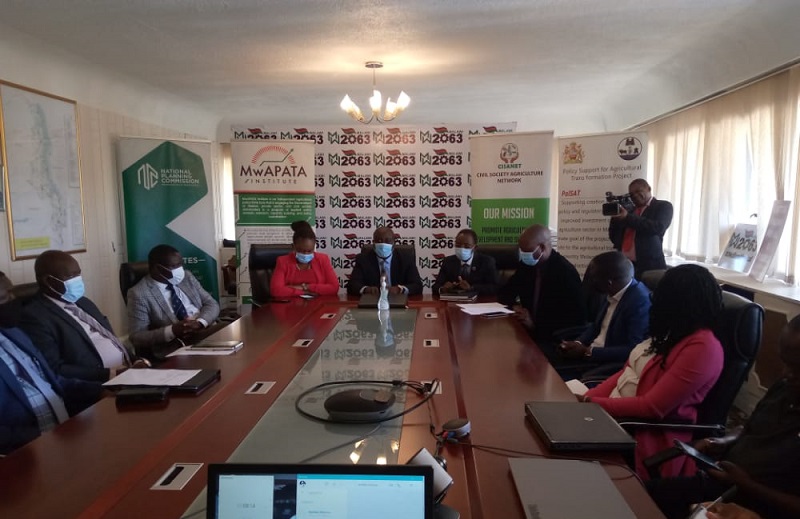An independent agricultural policy think tank MwAPATA Institute says unless Malawi works through implementation of research findings in the sector, it will be difficult for the country to realise its full potential in agricultural transformation.
MwAPATA Institute Executive Director William Chadza said this during a news conference in Lilongwe ahead of the first ever Malawi Annual Agriculture Policy Conference to be held in Lilongwe from 1st to 2nd June this year.
According to Chadza, there is need to create a platform for strategic dialogue and evidence-based policy guidance as well as implementation support for agricultural transformation in the country.
“We thought that we would have creation of this platform so that we can share various research findings and at the same we can also interface those who are making policy so that we have the opportunity of the research findings feeding into policy making processes.
We also that it was very important for those who are doing research to interact with those who have various innovation and practical solutions on the ground so that at least the two can actually interact,” reasoned Chadza.
On her part Civil Society Agriculture Network (CISANET) National Director Pamela Kuwali said the conference is a significant step towards creating an enabling environment for evidence-based policy research in the country`s agriculture sector.
“What we noted is that there is a lot of policy work that is going on in this country, there are a lot of publications and policy briefs that are coming out.
But there is always a gap between what research is recommending and what is taken on board into policy action, we do have the policies, but when it comes to implementation, we always miss out on what research is recommending,” observed Kuwali.
Speaking during the same briefing, Research Manager at National Planning Commission (NPC) Dr. Andrew Jamali said the policy is a readily available opportunity for the Commission to align Malawi 2063 by focusing on agriculture commercialization and productivity.
“This is an opportunity to mainstream policies alongside the Malawi 2063, there is need for us align the existing policies to the new vision, a case in point is the agriculture commercialization and productivity, that’s a new area in the vision that we are focusing on,” said Dr. Jamali.
The conference has been organized under the theme “Supporting Agriculture Transformation in Malawi: Beyond Research to Implementation”.
The conference partners are Michigan State University, Agricultural Transformation Initiative, Center for Agriculture Transformation and Pyxus Agriculture Limited.





